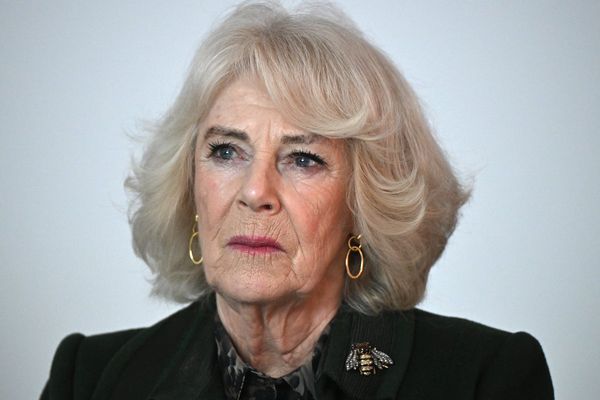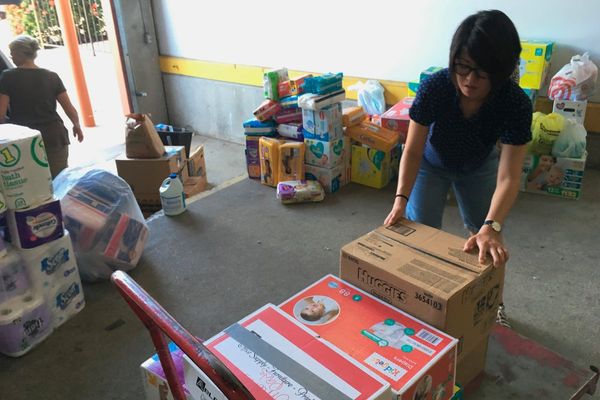Depression and anxiety don’t discriminate. They don’t care about beauty. They don’t care about money. They don’t care about fame. They don’t care how many advanced degrees a person may have. They don’t care about glamorous TV jobs. And they certainly don’t care about beauty queen titles.
Cheslie Kryst had all of those things and more. Her future looked bright.
But that doesn’t mean that she wasn’t also struggling. The 30-year-old beauty queen and Emmy Award-winning TV correspondent died early Sunday by suicide. The sad circumstances surrounding her death were a shock, because from outward appearances she had it all.
As an avid pageant watcher, I remember Kryst from 2019 when five Black women won first place in all of the major beauty contests: Miss America (Nia Franklin), Miss USA (Cheslie Kryst), Miss Teen USA (Kaliegh Garris), Miss Universe (Zozibini Tunzi) and Miss World (Tori-Ann Singh). Back in the day, Black women could barely even make it to runner-up status, much less walk away with a crown. Their collective victories were history-making — not to mention mind-blowing, considering how segregated pageantry used to be.
But dazzling smiles like the one Kryst was known for can camouflage the worst kinds of misery. Even people who, by all accounts, look as if they are living their best lives may be suffering silently, especially African American women. The strong Black woman trope can be a mirage. Women experience depression at rates twice that of men, but Black women are only about half as likely as white women to seek care.
News of Kryst’s death felt like a one-two punch coming a week after news of another hurtpiece: the death of actress Regina King’s son, Ian Alexander Jr., by suicide. He was 26.
CBS anchor Gayle King summed up the shock following Kryst’s death when she said: “Nobody saw this coming. And this is what’s so upsetting to me. How do you know to offer someone help if they don’t know they need the help? That’s why this is hitting me so hard.”
I understand her reaction. People want to help but too often we miss the signs, which may include feelings of worthlessness, mood swings, and giving away possessions, according to the National Organization for People of Color Against Suicide. After any tragedy, it’s only natural to wonder what might have been done to prevent it.
We need to be cognizant of the fact that 1 in 5 of all Americans will experience mental illness in a given year, according to the Center for Disease Control and Prevention. The past two years have made things worse.
“The truth is this pandemic has really changed the game for all of us. What it has most taught us is that everything that looks one way on the surface is not necessarily how it appears,” pointed out Argie Allen Wilson, a Philadelphia-based relationship therapist and author of "Courageous Conversations Connect: A Pathway to Reset Your Mindset with Intentional Thoughts from the Inside Out." “In this situation, with this young lady or even with Regina King’s son, people are saying, ‘Well how would you know if they are smiling and if they are attractive and they look like they have the world and everything going for them?’”
When I spoke with Wilson, she offered this advice that can apply to all of us hoping to help friends in need: “Pay attention. Ask questions. Be intentional. Stop. Sometimes we have to just stop and be present. One of the biggest barriers to connection is not being present because we are so busy doing so many things that we will miss the cues.”
She added: “Look out for the strong ones. That could be translated to be, ‘Look out for the attractive ones too. Or look out for ones who have resources. Don’t just look out for the ones who appear to you to be falling apart.’ Two years into the pandemic, I haven’t yet met anyone who hasn’t experienced some level of trauma.”
Wilson's words hit close to home. I haven’t been good about staying in touch with loved ones these past couple of years, as the pandemic has caused my social circle to shrink dramatically. Going forward, though, I will try to heed Wilson’s advice and check in more with those closest to me — even the really successful ones. Because you just never know.
———
GETTING HELP
If you or someone you know is thinking of suicide, call the National Suicide Prevention Lifeline at 1-800-273-8255 or text TALK to the Crisis Text Line at 741741. The Disaster Distress Helpline, 1-800-985-5990, is also providing immediate counseling to anyone who is seeking help in coping with the mental or emotional effects of the coronavirus pandemic.







